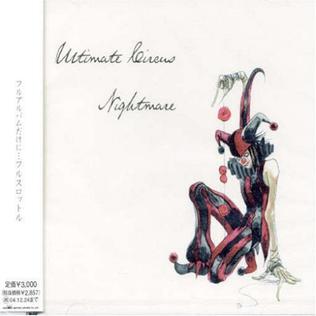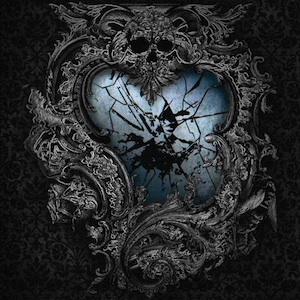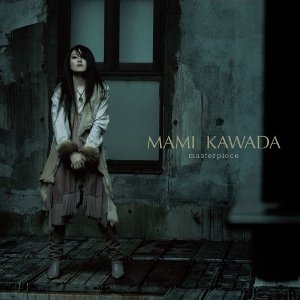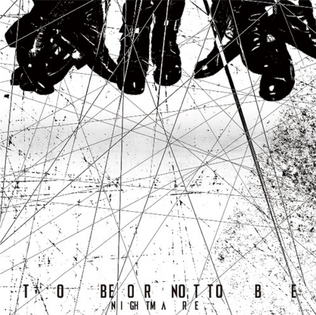Uverworld is a Japanese rock band consisting of six members and originating from Kusatsu, Shiga. "Uverworld" is a term coined by the band members, combining the German word "über" with the English word "world" to form a phrase that means "crossing above the world". They have released nine studio albums and over twenty singles and have sold over three million records worldwide. The band's musical style was influenced by 1960s rock bands like The Beatles, The Zombies, and The Beach Boys, and later influenced by The Cookies, The Kinks, and The Cramps. Vocalist Takuya cited Frank Sinatra, Queen, David Bowie, Weezer, Green Day, and later My Chemical Romance as influences for the band.

Ultimate Circus is Nightmare's debut studio album. This album came in two versions, the regular version, and another one in a black slip case. It peaked at #115 in the Oricon Charts.

anima is Nightmare's third full-length studio album, released on February 22, 2006. and arguably, the best known. This album is considered a huge stepping stone in the band's future success. The sound of this album has a lighter and more pop feel than its predecessors, Livid and Ultimate Circus. It peaked at #12 in the Oricon Charts.

the WORLD Ruler is Nightmare's fourth full-length studio album. Nightmare's experimentation with the styles of electronica, ambience, and usage of live brass began in this album. Three different versions of this album were released: a CD-only version; a CD+DVD version; and a bonus CD, DVD and photobook pack. It peaked at #6 in the Oricon Charts. The tracks "The World" and "Alumina" were featured in Death Note as the first opening and ending songs, respectively.
Tourbillon are a Japanese musical project formed in 2005 by Luna Sea members Ryuichi Kawamura (vocals) and Inoran (guitar), and D-Loop member Hiroaki "H. Hayama" Hayama (keyboards).

"masterpiece" is the seventh single released by the J-pop singer, Mami Kawada, and was released on February 4, 2009. The title track was used as the second opening theme for the anime series A Certain Magical Index which is her third tie-in with the anime series. This is also Kawada's first single to be produced by a female composer/arranger of I've Sound, which is Maiko Iuchi.

Majestical Parade is Nightmare's sixth full-length studio album. Three different versions of this album were released: one with just the CD; one with a CD+DVD; and one with a CD+DVD and a photo book. The sixth song, MELODY, was released as a limited single download on the DWANGO homepage. The album reached #3 in the Oricon Charts.

Gianizm is one of Nightmare's 10th anniversary albums, released on January 1, 2010. Two different versions were released. One containing only a CD, and the other containing a CD+DVD. The album is a compilation of all the "Gianizm" tracks, including two new Gianizm tracks never before released. All tracks have been re-recorded for the album, excluding Shichi, Hachi, and Kyuu. The DVD included with the limited edition contains a video for each track. The album peaked at #19 in the Oricon chart, selling 18,201 copies in the first week.
The Neon Genesis Evangelion franchise has had various soundtracks, remix albums and compilations released around it. The franchise has sold more than 9 million albums and singles.
Nightmare is a Japanese visual kei rock band formed in January 2000. As of the end of January 2015, they have released ten studio albums, four compilation albums and twenty-eight singles. Most of their albums and singles have been released in three formats - two with bonus DVDs and one CD only.

Nightmare is the seventh studio album from the Japanese band Nightmare. Like all the band's recent releases, this album was released in three different editions, each with different artwork. The 2 limited edition albums contain bonus DVD tracks, while the regular edition includes a bonus track titled "Dazzle". The album peaked at #10 in the Oricon charts and sold 16,971 copies in the first week.

Zigaexperientia is the third studio album by the Japanese J-pop band Supercell, released on November 27, 2013 by SME. The album contains 15 music tracks written by Ryo, and sung by Koeda, though officially Koeda is not a member of Supercell. Six of the tracks were previously released on five of Supercell's singles. Three different editions of the album were released: a regular CD version, a CD+DVD limited edition, and a CD+BD limited edition. Zigaexperientia peaked at No. 7 on the Japanese Oricon weekly albums chart.

To Be or Not to Be is Nightmare's ninth full-length studio album. As all of their recent album releases, it came in three different versions, each with different artwork. The two limited editions, each come with different DVD tracks while the standard edition came with one extra song. The album peaked #11 in the Oricon charts.

Birthday is the debut studio album of the Japanese pop music duo ClariS, released on April 11, 2012 by SME Records. The album contains 12 music tracks, four of which were previously released on four of ClariS' singles. Three different editions of the album were released: a regular CD version, a two-CD limited edition and a CD+DVD limited edition. Birthday peaked at No. 2 on the Japanese Oricon weekly albums chart and was awarded a Gold Disc by the Recording Industry Association of Japan in May 2012.

Second Story is the second studio album of the Japanese pop music duo ClariS, released on June 26, 2013 by SME Records. The album contains 12 music tracks, three of which were previously released on three of ClariS' singles. Three different editions of the album were released: a regular CD version and two CD+DVD limited editions. Second Story peaked at No. 6 on the Japanese Oricon weekly albums chart.

Party Time is the third studio album of the Japanese pop music duo ClariS, released on June 4, 2014 by SME Records. The album contains 12 music tracks, three of which were previously released on three of ClariS' singles. Three different editions of the album were released: a regular CD version and two limited editions. Party Time was the last time Clara and Alice performed as ClariS, with Alice leaving the duo. Party Time peaked at No. 2 on the Japanese Oricon weekly albums chart.

Who's Back? is the eighth Japanese studio album by South Korean singer BoA. It was released on September 3, 2014 and compiles all of her singles released since Identity in 2010.













